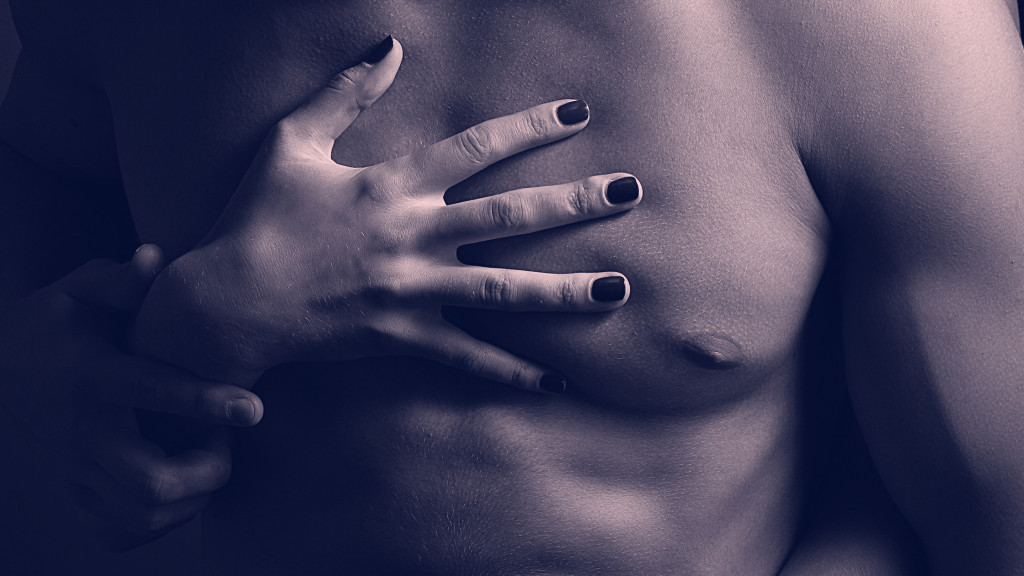
At the box office, muscle is still king. From Ryan Reynolds to Zac Efron and Chris Hemsworth, Hollywood’s leading men seem to be getting more ripped with each passing year. But are they getting too ripped? Have they gotten so musclebound that their bodies are no longer a big turn-on to heterosexual female moviegoers?
Until recently, social scientists have argued that there’s a sweet spot when it comes to male muscularity—that women are most attracted to guys with moderate muscle mass. This phenomenon is known by the rather unwieldy name “the inverted-U hypothesis of masculine traits.”
This hypothesis is based on the idea that women evolved to be attracted to fit, muscular guys because mating with them offers genetic benefits to their offspring. So having more muscles should make a guy sexier in the eyes of women—but only to a point. If he gets too big, he starts to be seen as threatening and dangerous.
Though previous research provided some support for this idea, it suffered from a major limitation: instead of showing women photos of actual men and asking them to rate their attractiveness, women were instead shown drawings and computer-generated images. What if women instead rated real men with different levels of muscularity? Would the same preference for guys somewhere in the middle still emerge?
According to a new set of studies published in the *Proceedings of the Royal Society *B, the answer appears to be no. In fact, the findings from this research suggest that when it comes to how women feel about the male body, the stronger he is, the better.
In the studies, 160 women from two universities (one in Australia and one in the United States) took part in this research. They were shown a series of photos featuring young men whose faces had been blacked out, but whose bodies remained visible. Some of the photographed men were recruited from a gym in Southern California, while the others were recruited from a university student center, thus providing a range of body types. The men were rated in terms of both their attractiveness and perceived physical strength.
It turned out that the stronger a man was seen as being, the more attractive he was. In fact, strength ratings accounted for more than 70% of the variability in attractiveness ratings. In other words, men’s attractiveness was predominately a function of their physical formidability.
Of the 160 women who participated in the study, not a single one expressed a preference for physically weaker men over stronger men.
There was no support for the inverted-U hypothesis, meaning that men with moderate strength were not rated as more desirable than guys at both the low and high ends of the spectrum. Instead, a perfectly linear association emerged, meaning that high strength was seen as most attractive, followed by moderate strength, followed by low strength.
This preference for strength was pretty much unanimous: Of the 160 women who participated, not a single one expressed a preference for physically weaker men over stronger men.
Now, this isn’t to say that perceived strength was the only thing that was important. Being taller was also linked to higher attractiveness ratings, while being heavier was linked to lower attractiveness ratings. Compared to perceived strength, however, height and weight didn’t explain nearly as much of the difference in attractiveness ratings.
So why is the link between strength and attractiveness so strong? Evolutionary psychologists believe that our female ancestors received both direct and indirect benefits from mating with strong, muscular guys, which led women to evolve a preference for men with these physical traits. The direct benefits involved having a guy who would be more capable of offering protection and procuring resources, thereby increasing the odds of both her and her children’s survival. The indirect benefit came in terms of the traits passed on to children—the fitter the father, the healthier and stronger his kids are likely to be.
Of course, we can’t say for sure that this explanation is correct. Also, and even more important, remember that in the real world, judgments of attractiveness are complex and take into account far more than physical appearance alone.
In some ways, it shouldn’t be surprising that women’s ratings of attractiveness were so heavily dependent on physical strength in this research, because they didn’t have much else on which to base their judgments. If these men’s faces were also visible and information was provided about some of their psychological traits (such as their personality), I suspect that the link between strength and attractiveness would decrease quite a bit.
It’s also possible that weaker men could be seen as more attractive than stronger men to the extent that they possess other, even more desirable traits. For example, research has found that women report an easier time reaching orgasm with men who make them laugh often. Humor signals a number of desirable traits, including intelligence, which can be a real turn-on. And that right there may be why comedians who don’t have immaculately chiseled bodies—like Seth Rogen and Jonah Hill—aren’t exactly suffering in the romance department.
With all of that said, while the results of this research certainly seem to suggest that stronger guys tend to be more attractive to women, this doesn’t mean that you need to become a gym rat in order to get a date. There are a lot of things that can make a guy attractive—and a good sense of humor will do just fine.
